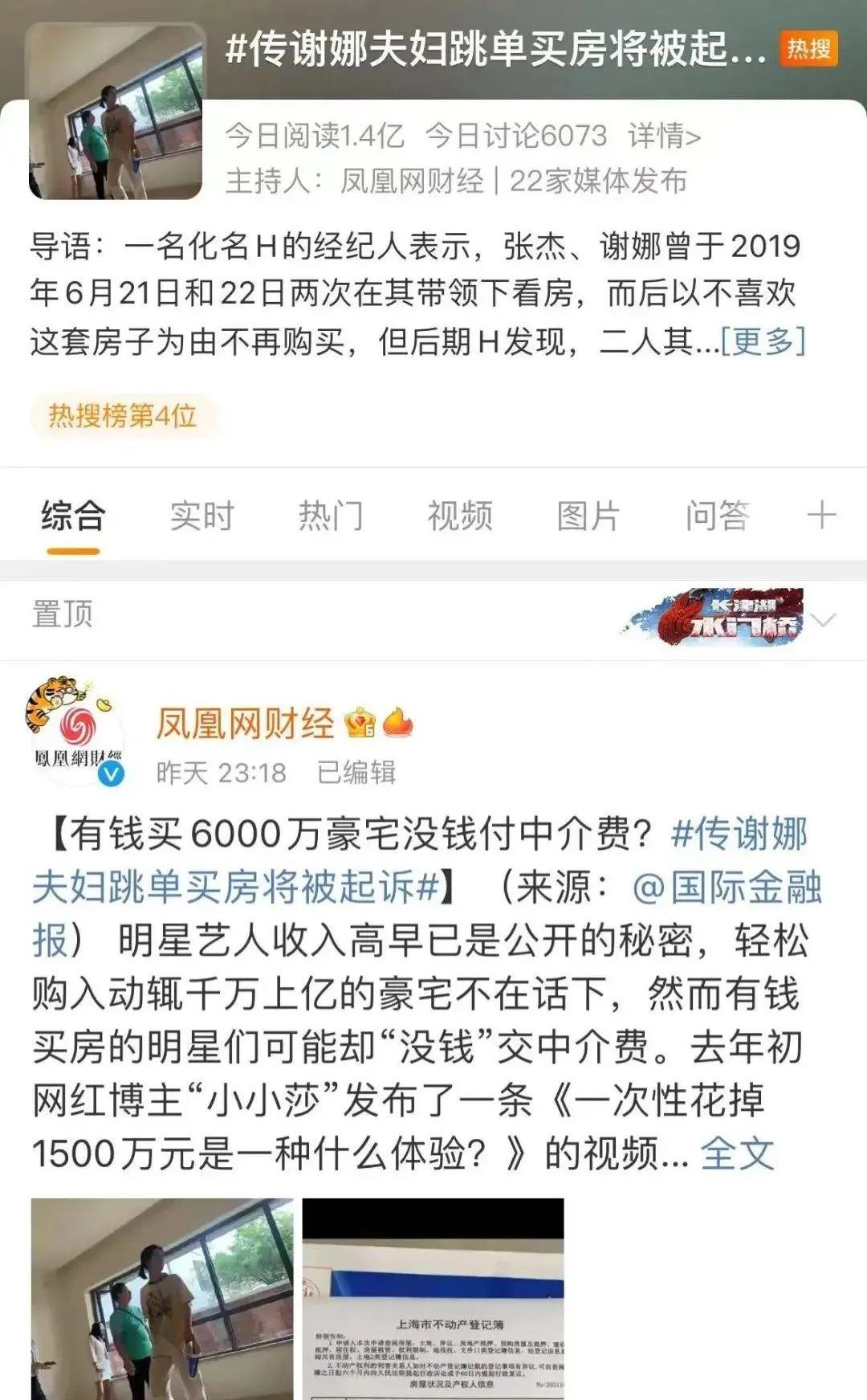Recently, an article about "celebrities Zhang Jie and Xie Na buying a property in Shanghai but jumping a single" was fermented on the Internet, and related topics quickly appeared on the hot search list, causing many netizens to pay attention.

In the article circulating online, an agent under the pseudonym H said that Zhang Jie and Xie Na had visited the house under their leadership twice on June 21 and 22, 2019, and then stopped buying it on the grounds that they did not like the house, but later H found that the two actually contacted the landlord privately to buy the listing, avoiding more than 1 million large intermediary fees. The intermediary said that now he will use legal means to reasonably defend his rights or sue Zhang Jiexiana.
The parties respond
In response to the incident, on the afternoon of February 8, lawyer Xie Na Zhang Jiefang issued a statement in response: Mr. H fabricated facts, and the false information such as "jumping orders" and "threats" mentioned by him has been suspected of rumors and slander, and at the same time, his behavior of secretly filming and publishing personal privacy infringes on the legitimate rights and interests of the parties; the online article "Xie Na, Zhang Jie jumps singles, threatening intermediaries infected with the new crown" seriously deviates from the objective facts.
The lawyer has been entrusted to enter the judicial process and reserves the right to pursue other legal proceedings against the incident, the person involved and the relevant social accounts and platforms.
What is a "jump order"?
The act of "skipping orders", also known as "skipping intermediaries", refers to the act of the buyer or seller having signed a pre-sale confirmation, a entrustment purchase agreement or a sale agreement with the intermediary (company), the intermediary company has fulfilled the obligation to provide exclusive resource information and promote the buyer and seller to meet and negotiate in accordance with the agreement, and the buyer or seller has skipped the intermediary and signed the sale and purchase contract privately in order to circumvent or reduce the obligation to pay the intermediary fee to the intermediary in accordance with the agreement.
Lawyer: Whether it constitutes a "skipping order" needs to be determined
Lei Guoya, a partner at Beijing Jingshi Law Firm, said that article 965 of the Civil Code stipulates that if the client takes advantage of the transaction opportunities or media services provided by the intermediary to directly conclude a contract around the intermediary after accepting the intermediary's services, it shall pay remuneration to the intermediary.
This means that if the buyer accepts the intermediary's service and skips the order, he needs to pay the corresponding intermediary fee to the intermediary as usual. However, the "direct conclusion of the contract" here refers to the direct transaction between the two parties without going through any intermediary.
In reality, sellers usually entrust their houses to multiple intermediaries for sale, and if the buyer facilitates the transaction through another intermediary with lower fees and better services, it does not constitute a "jump order".
Lei Guoya said that in the process of buying a house, in the absence of signing a relevant agreement, even if the intermediary takes a look at the relevant house, the buyer still has the opportunity to obtain the same listing information through other legitimate channels, and has the right to choose an intermediary with a lower offer and better service to reach a transaction, which does not constitute a "jumping order" default.
Lei Guoya said that after the occurrence of "skipping orders", even if the "skipping order" behavior is determined by the court, it is difficult for the intermediary to claim that the buyer compensates the full intermediary fee according to the standard of the "Confirmation of House Viewing", and it is difficult to be fully supported. Jump orders generally occur before signing the contract, and it is difficult for the intermediary to obtain legal support if the intermediary claims the full amount of the intermediary service fee according to this.
For the Skip Order behavior
What do you think?
Let's talk in the comments section!
Source: Guangzhou Popularization of Law
Rule of Law Pudong Comprehensive Editor